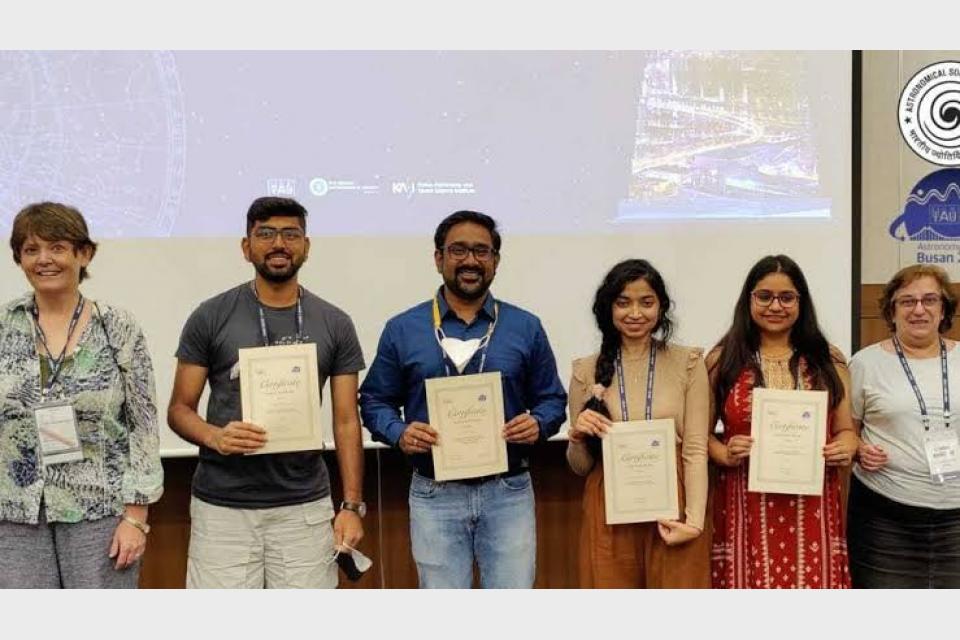If stargazing was your choice of activity this week, it turns out you might not need a telescope or have to look up at the sky after all! Simply heed your eyes towards the ongoing assembly of the International Astronomical Union — the world’s largest gathering of astronomers — where our nebulae of trailblazing Indian astronomers have stolen the show with their achievements in astronomy and solar studies.
At the global event being hosted in Busan, South Korea from August 2-11, many of our astronomers have been awarded awards for outstanding thesis work by the space organisation. Some of the winning recipients include Dr Prantika Bhowmik of the Indian Institutes of Science Education and Research, who won the Large Prize for her thesis research predicting future activity of the Sun using novel computational methods.
Turns out, solar physics was the hot topic for many of these researchers as well! Other winners include Reetika Joshi of the Aryabhatta Research Institute of Observational Sciences for her observations of plasma jets in the cataclysmic million-degree-hot solar atmosphere. Two astronomers, Gopal Hazra of the Indian Institute of Science and Souvik Bose of the University of Oslo won best PhD thesis awards for their exceptional work on 3D computational models of the solar sunspot cycle and chromospheric spicules, respectively.
In fact, out of the seven winners of the PhD prize since 2019 in Division E of the Astronomical Union, seven were Indians!
“It is rare for one country to win so many PhD thesis awards at this global forum and even more rare that all of these prizes are in the field of solar physics," said Dipankar Banerjee, the President of the Astronomical Society of India.
In a first, the Astronomical Society of India is hosting an Indian pavilion that will seek to showcase past and future strides in Indian astronomy and science. Many home-grown facilities such as the Pune Giant Metre-wave Radio Telescope, the Devasthal Optical Telescope and the Kodaikanal and Udaipur Solar Observatories will be put on display during this event.
Visitors will also be able to learn about ongoing space missions like the Chandrayaan and Astrosat, as well as be introduced to upcoming projects such as India's first space-based solar observatory, the Aditya-L1 mission.
Other features include India's contribution to major international collaborations, such as the infamous LIGO in the US, the under-construction Thirty Metre Telescope that will help us see deeper into space like never before, and the soon-to-be largest intergovernmental radio telescope project, the Square Kilometre Array.









